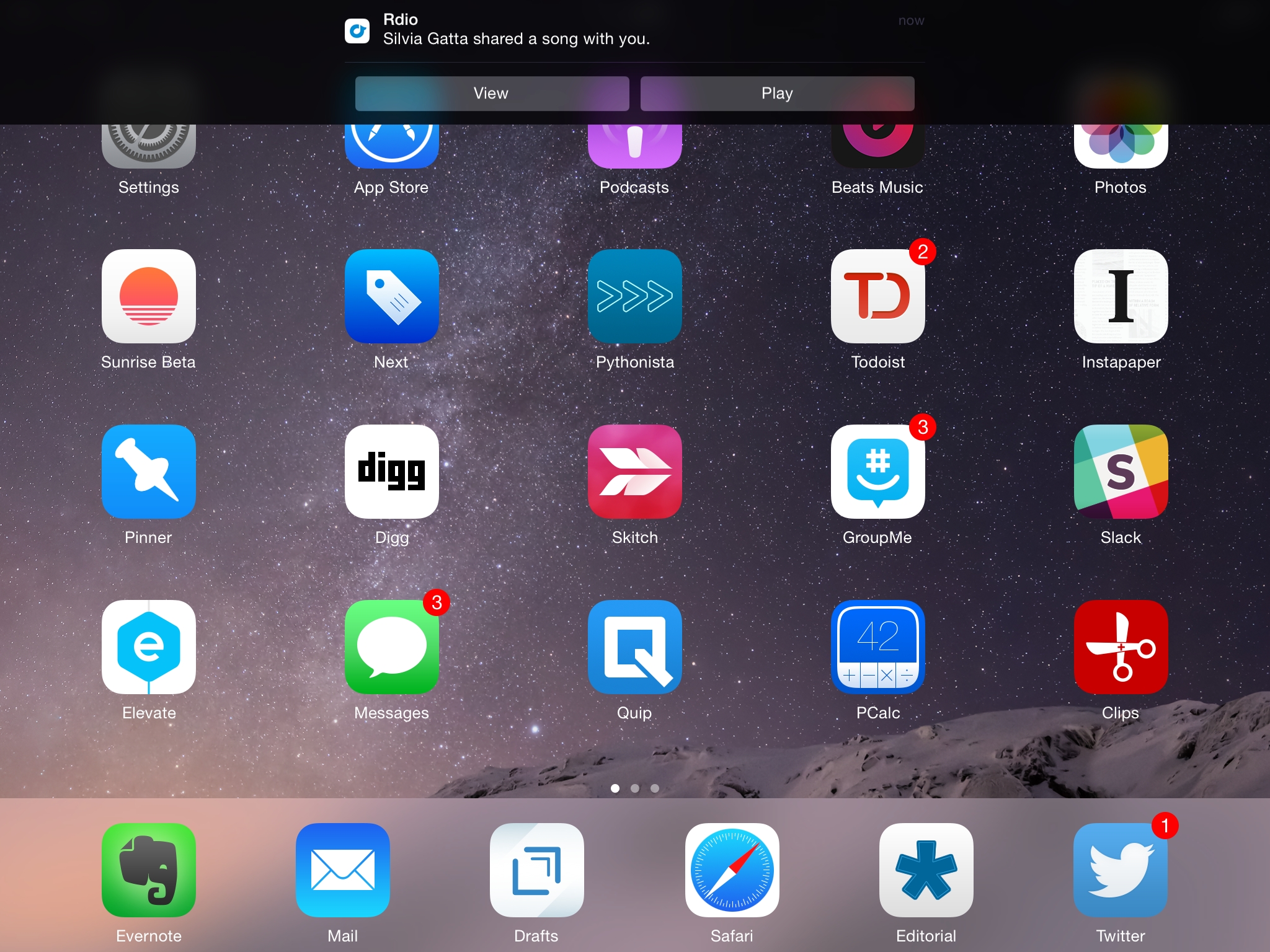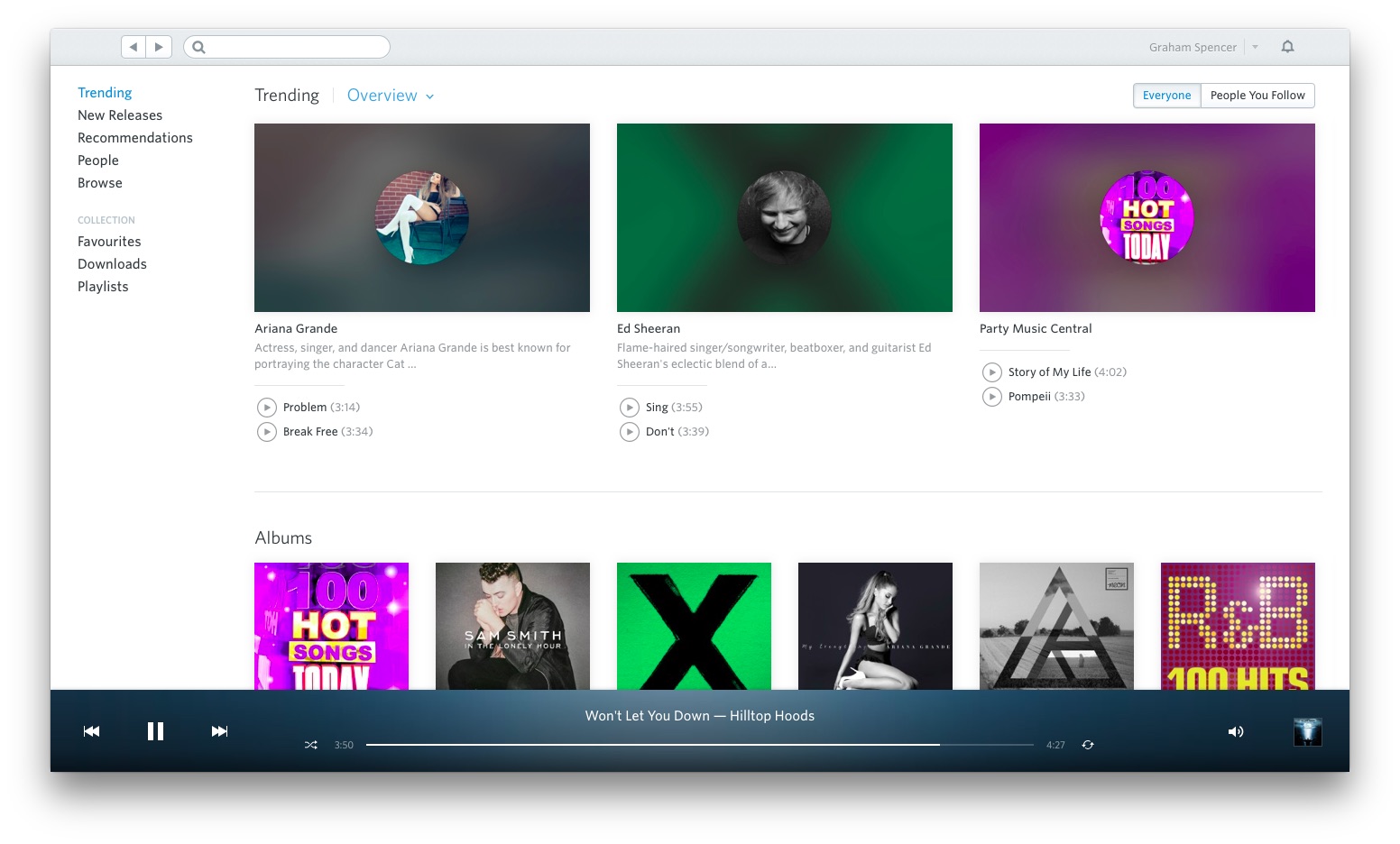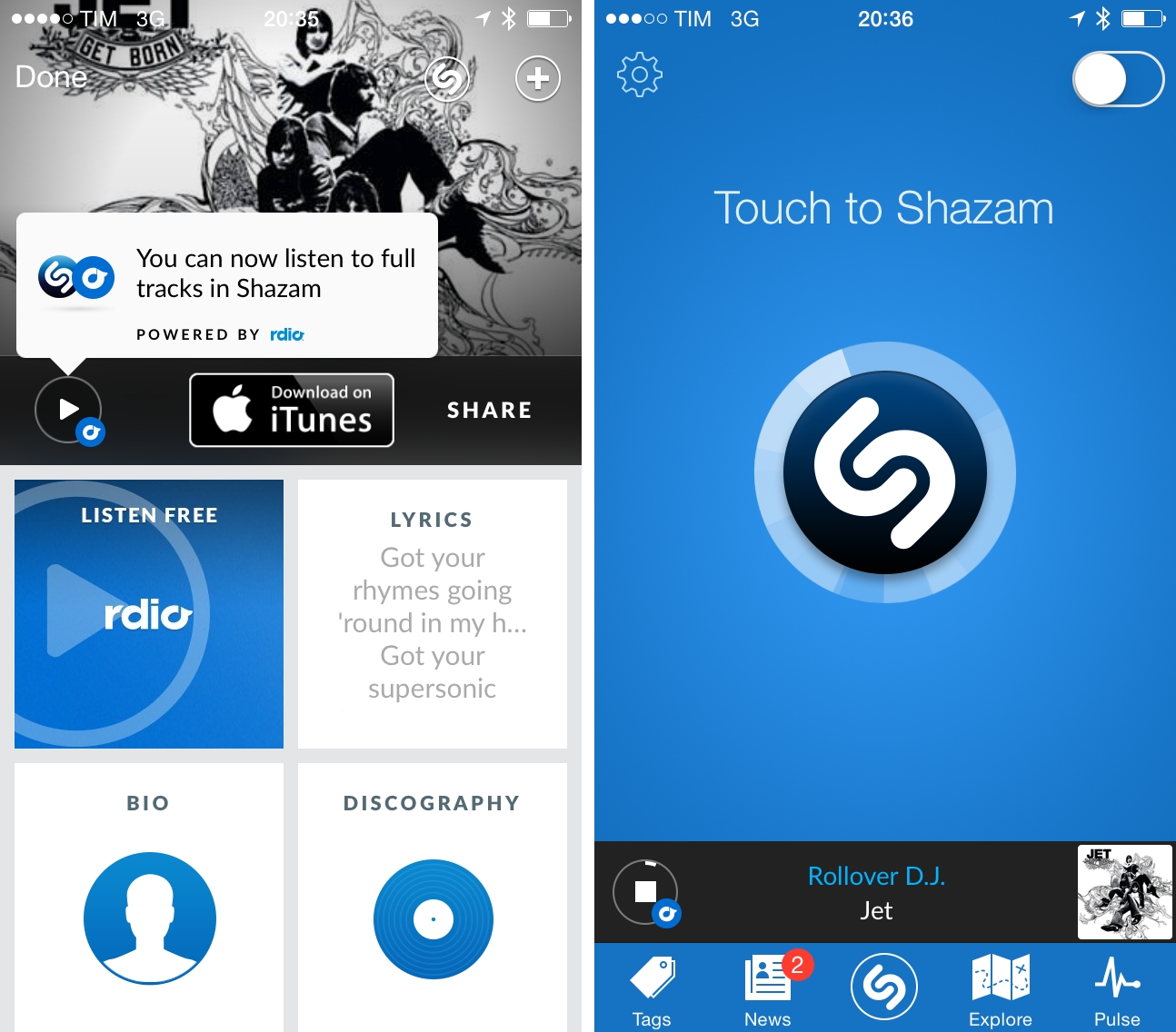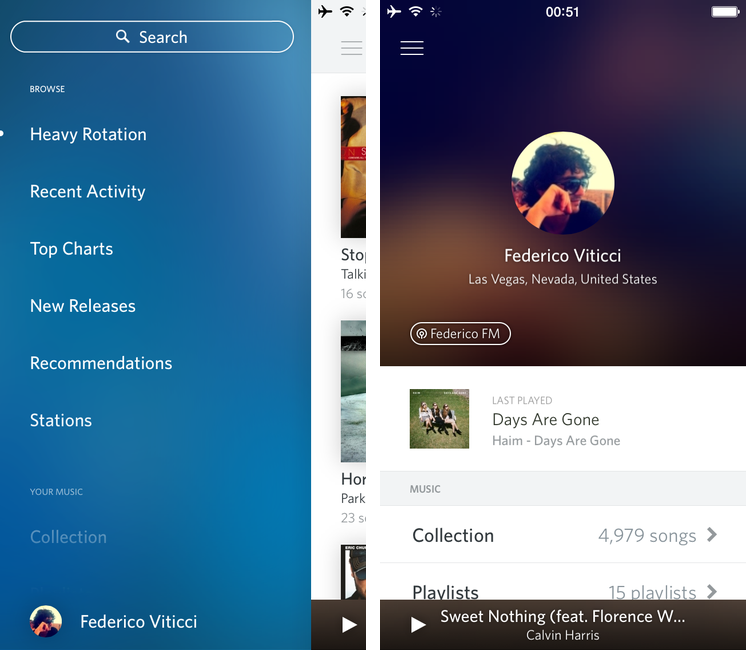Yesterday, music streaming service Rdio announced they’re filing for bankruptcy and that key assets of the company will be acquired by Pandora. Casey Newton has written an obituary for The Verge, with some good points about Rdio’s focus on design:
Miner jokes the design was aimed at “snobby album purists.” Among its subscribers were a small legion of user interface and user experience designers — one reason you see little touches of Rdio everywhere you look. It’s there in the blurred album art that you now see in the background of other streaming music services. It’s there in the translucent panes and gradients that Apple introduced with iOS 7. It’s there in the redesigned app for Pandora, the company that ultimately acquired it. For its part, Pandora says that Becherer and his team will build a new on-demand product for the company using Rdio’s intellectual property. It is expected to launch in late 2016.
Rdio wasn’t the first music streaming service I tried, but it was the first one I loved, and that was because of its tasteful design and focus on albums and discovery. You could tell that the people who made Rdio loved music and the idea of sharing music. They cared. And ultimately, focusing too much on design touches while avoiding basic aspects like growth and marketing spelled the end of the company.
There’s no doubt in my mind – Rdio was the most elegant streaming service. Its social, discovery, and playback features (good queue management, sort by label, heavy rotation among friends, excellent weekly releases – just to name a few) were simply unrivaled. Rdio was great.
I used to write about Rdio a lot, and you can still find all my old posts and screenshots here. I’ll miss Rdio.





